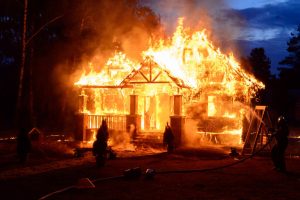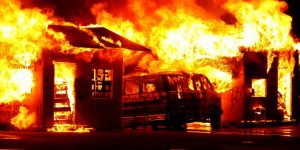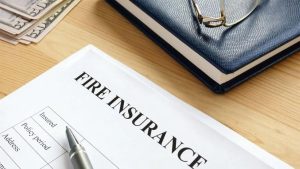Fire can wreak havoc on your business assets and disrupt operations, so having appropriate insurance policies in place is vital for helping your organization recover from unanticipated disasters.
Tangible assets for businesses include buildings, inventory like flour or sugar, furniture, and daily equipment that’s relied upon by employees and customers alike. Insurance carriers take into account flammability when setting rates for this coverage.
Protect Your Building
As natural disasters and fires continue to make headlines across the country, more individuals and businesses are looking for ways to safeguard their property from destruction. One such way is business fire insurance – also referred to as commercial property insurance. This policy protects physical assets like office furniture and inventory against risk due to fire and other perils that could potentially cause them damage.
Standard commercial property policies provide coverage against fire damage to both the building itself and its contents, while they may also include coverages such as smoke or charring damage to equipment and inventory, replacement costs for damaged items and more. Some of these additional coverages might even be provided through endorsements to expand on an existing policy’s coverage scope.
Not only can fire damage be costly, it can also negatively impact your ability to conduct business, affecting renters, suppliers, vendors and employees – even forcing some businesses to relocate permanently if the damage is severe enough. A business interruption policy provides coverage against this loss in income that typically is not included with standard commercial property policies.
To maximize the value of your business fire insurance policy, it’s essential that you review it closely to make sure it offers adequate protection for your property. This means understanding what’s covered; for instance actual cash value, replacement cost and agreed value; in addition to any limitations or exclusions of your policy so as to effectively manage risks.
Protect Your Equipment
Preventive measures and adequate coverage can help a business recover from fire damage more quickly, yet business owners shouldn’t rely solely on insurance policies to secure their investments. By conducting regular equipment inspections and maintenance checks, businesses can mitigate risk. Being informed about policy requirements will allow them to avoid an insurer denial for failing to meet these standards.
Commercial property insurance policies provide protection for companies by covering the costs associated with rebuilding structures damaged by fire. They may also cover replacement of inventory and essential machinery lost due to a blaze, as well as covering lost profits and expenses during any periods when business operations cannot resume.
Business interruption insurance provides extra protection to businesses when disaster strikes, with coverage that includes costs related to temporary premises, lost income and additional expenses that might occur as a result of fires. This form of coverage should always be included as part of commercial property policies and will cover temporary premises costs, lost income as well as additional expenses caused by fires.
Finally, many companies can add general liability insurance to their commercial property policy to protect themselves against third-party losses and damages caused by fires. This coverage will pay for medical treatment should any third-party be injured due to the fire and this policy also protects them from prosecution if anyone suffers any injuries from it.
Protect Your Assets
Fires have the ability to damage buildings as well as the inventory, equipment and movable property housed within. Furthermore, smoke from these fires can wreak havoc with furniture and ductwork systems, and even water used to combat them may do further harm to items within it causing lasting problems.
If a business does not have the funds available to it to replace lost items, it could face total closure due to lack of replacement expenses. A fire insurance policy can help mitigate this loss of revenue and ensure operations can resume post-disaster.
Fire insurance policies typically cover the costs associated with repairing or replacing damaged property, temporary relocation expenses, lost income and inventory loss. Some policies even offer valuable papers and records coverage which protects contents of leased or borrowed equipment. Businesses should consider also purchasing commercial general liability (CGL) and business interruption coverage for added protection against risks associated with fire.
Implementing fire safety measures and conducting regular inspections are two effective strategies that businesses can employ to help minimize fire-related claims. Companies who regularly hold fire drills demonstrate their dedication to employee and customer health and safety – while possibly helping secure lower premiums.
Protect Your Business
Fire damage to a business can be catastrophic, yet preventive maintenance and insurance can help minimize financial strain.
Commercial property policies cover both physical structures and tangible business assets such as inventory, equipment and movable items such as furniture. Furthermore, this form of insurance can reimburse businesses for lost income during any periods when their operation was temporarily disrupted due to fire-related damages. Depending on the nature of their business, valuable papers and records insurance or business interruption coverage policies may provide extra coverage.
Fire can do irreparable harm to buildings and their contents. Without fire insurance coverage, businesses without protection will have to cover repairs as well as fire department service charges themselves – costs that could prove quite costly for any unprotected company.
Business owners must consider several factors when selecting the type of fire insurance coverage that is right for their building: size and location of their structure, whether or not they lease or own their property, importance of inventory items covered, replacement value versus actual cash value reimbursement policy options available and bundling commercial property and general liability policies as a comprehensive protection against third-party injury and damage claims.




